Evaluation of the contribution and achievements of the KAMEA Program scientists in enhancing the scientific research and the industry in Israel
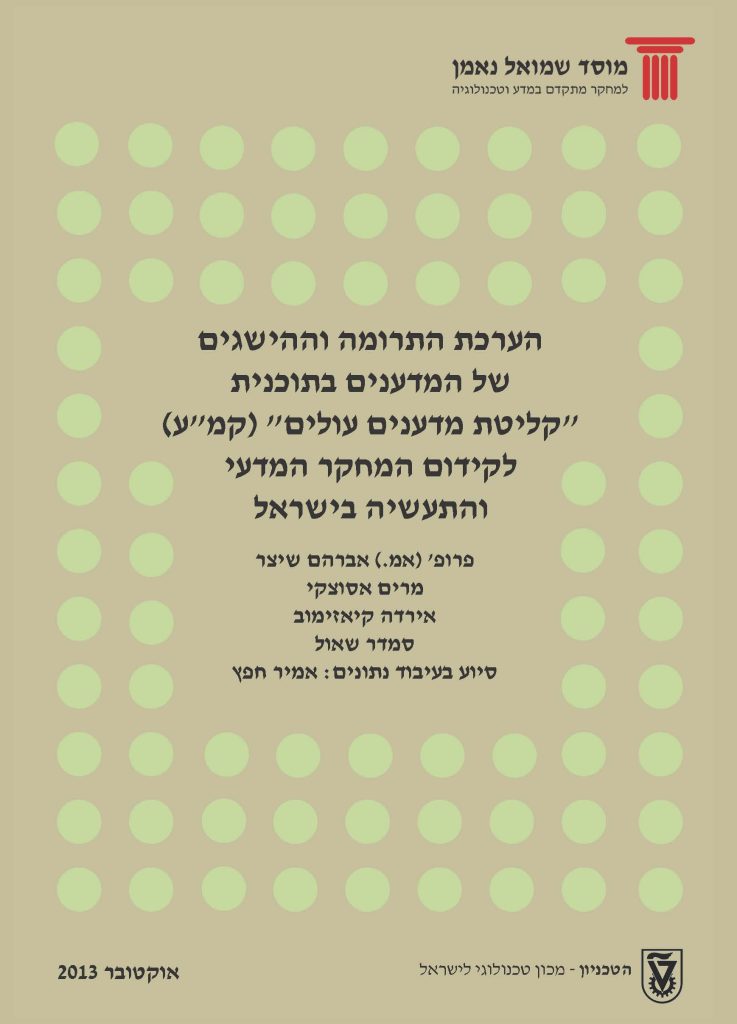
This study was conducted in cooperation between the Samuel Neaman Institute and the Ministry for Immigrant Absorption. The purpose of the study was to evaluate the contributions, achievements and costs of the program for absorption of immigrant scientists in research and higher learning institutions in Israel (KAMEA), from its initiation in 1998 until the end […]
Success Stories
This book features 78 success stories that depict Ultra-Orthodox individuals, men and women, in Israel, who have successfully integrated into the world of academic education , employment and the military. The stories were compiled by researchers in the Ultra-Orthodox Integration Project at the Samuel Neaman Institute, using contacts and sources of information at their disposal […]
Orthodox Employment – Information Booklet Second Edition
This information booklet was written on the basis of knowledge and experience accumulated at the Samuel Neaman Institute during the running of the “Ultra-Orthodox Integration Project”. The booklet is designed for managers and owners of companies and organizations, and human resource managers in these organizations – especially secular ones. It should provide them with the […]
Changes in productivity amongst Jewish women
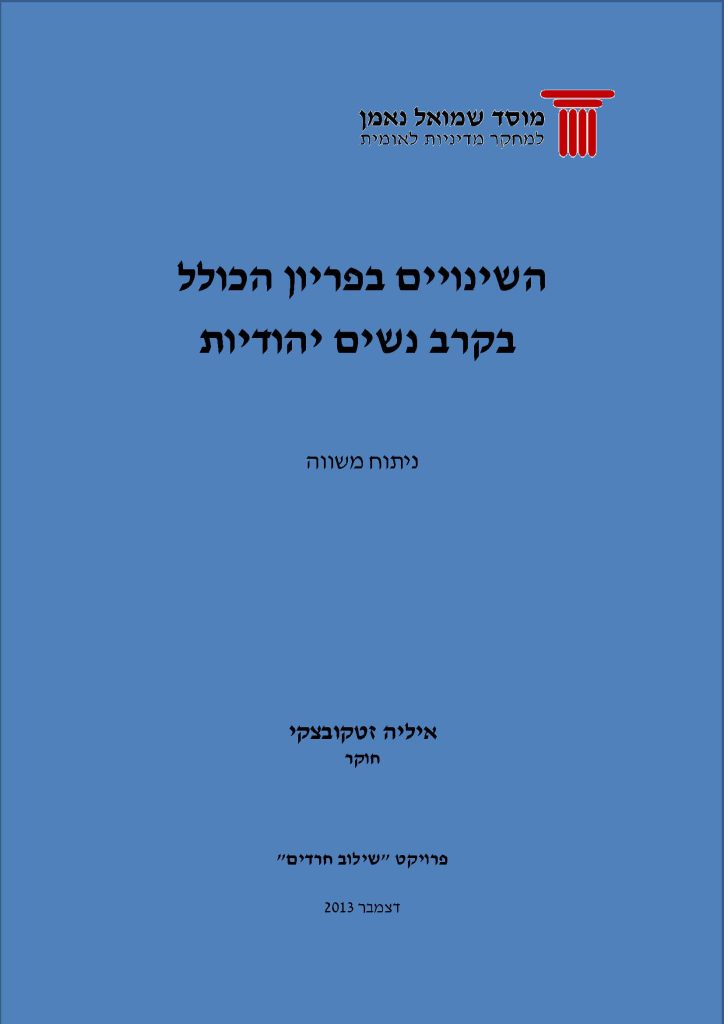
The following short report attempts to examine some of the data relating to the total fertility trends amongst Jewish Orthodox women , as they were presented in the research of several scholars . Moreover, the document contains a preliminary analysis of the reasons for these trends . The tests mentioned in the paper point to […]
MACHA’R IS ALREADY HERE
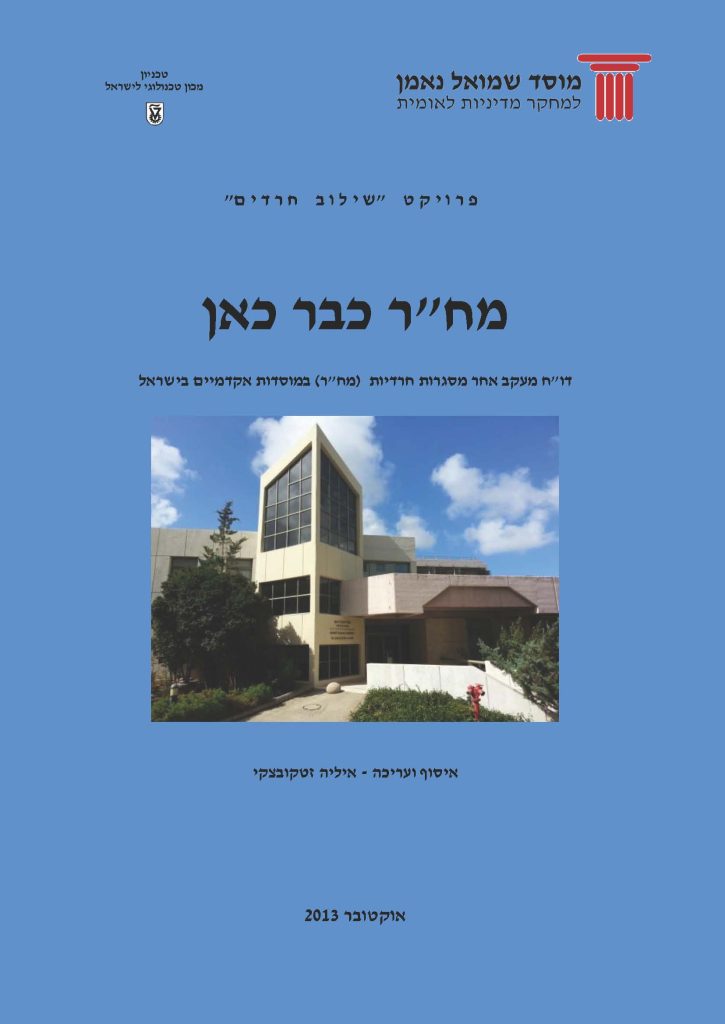
In November 2012 , the Planning and Budgeting Committee (PBC ) of the Council for Higher Education published a Call to all Israeli academic institutions encouraging the creation of specialized Haredi academic frameworks within existing institutions . This Call was the result of a process that began several years before and had gained momentum, after […]
Energy Forum 29: Smart Cities
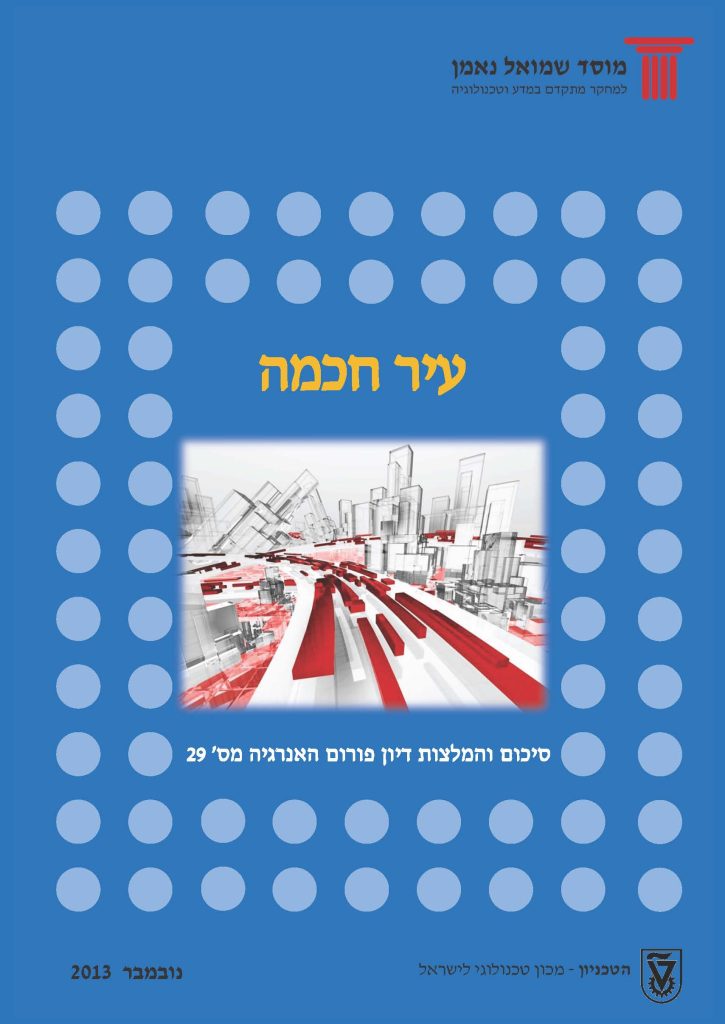
Most of the world’s population today lives in cities. In order to continuously serve and improve the increasing population’s life quality, there is a growing need to develop smart cities. A smart city strives to optimally and sustainably utilize available resources, while maintaining adequate balance between social, environmental and economic costs. There are many benefits […]
Integration of waste-derived alternative fuels in Israel’s transportation system – Phase A: literature review
This paper was submitted to the Ministry of Energy and Water Resources, and provides a thorough review of the current available technologies for using waste as a source for alternative fuels, as well as an estimation of the available waste supply in Israel. The document layout: Review of the three waste-derived transportation fuel production technology […]
Integration of electric and hybrid vehicles in Israel’s transportation system – Phase A: literature review
This document holds the first phase of the paper, and entails a literature review about alternative vehicle drivetrains (with emphasis on the various forms of electrical and hybrid vehicles).
Oil Shale Occurrences in Israel – Geological Updated information

Oil shale occurrences underlie about 15% of Israel’s land surface. The geological reserves (rocks with at least 7% total organic carbon) are estimated to exceed 370 billion tons. The potential yield of shale oil is more than 30 billion tons, with an average grade supposed to be ~20 G/T. Most of the deposits are close […]
Adaptation to climate change in the local authorities
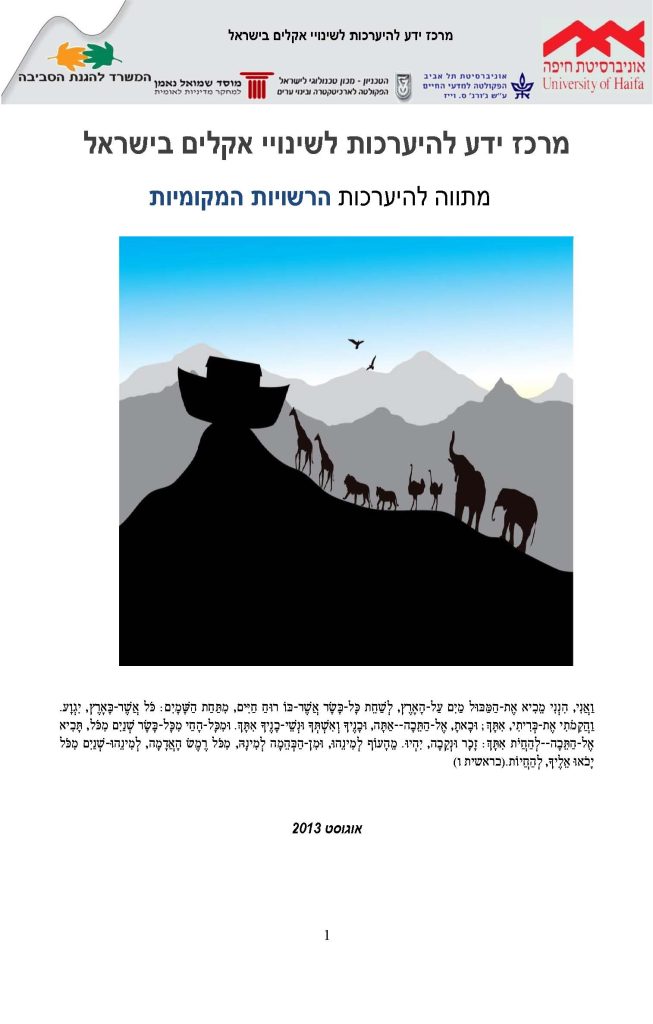
ICCIC team prepared a report on adaptation policy recommendations for local authorities in Israel. Climate change is expected to affect the water sector in the State of Israel, the health of residents, the existence of biodiversity and ecosystems supplying ecological services, urban climate and our energy consumption in homes and the communities where we live. […]
